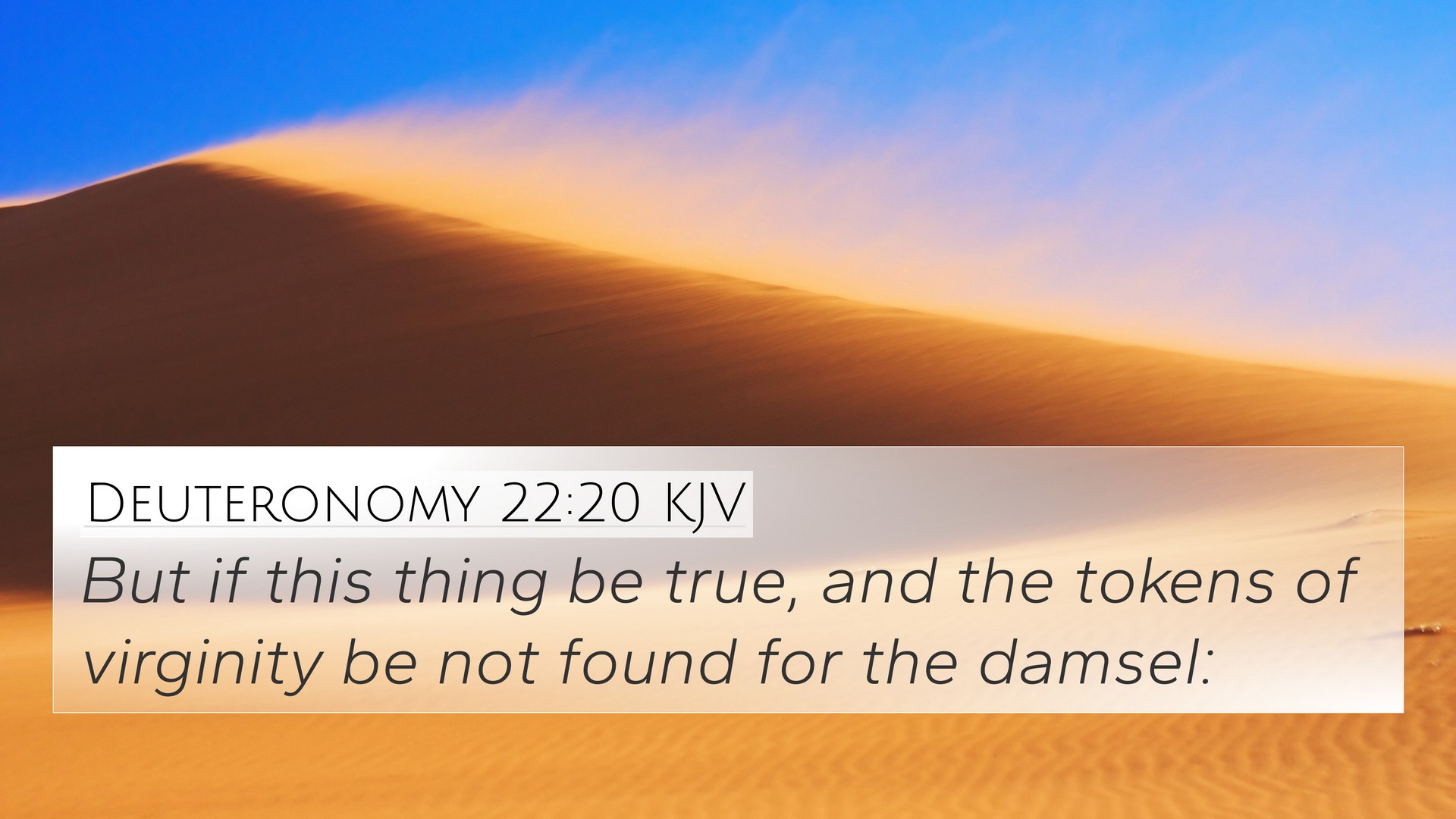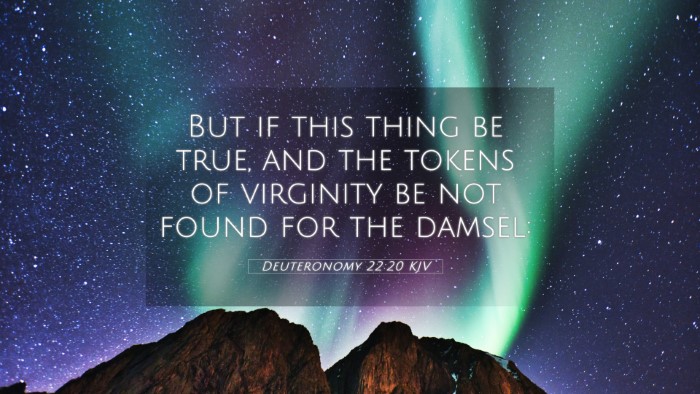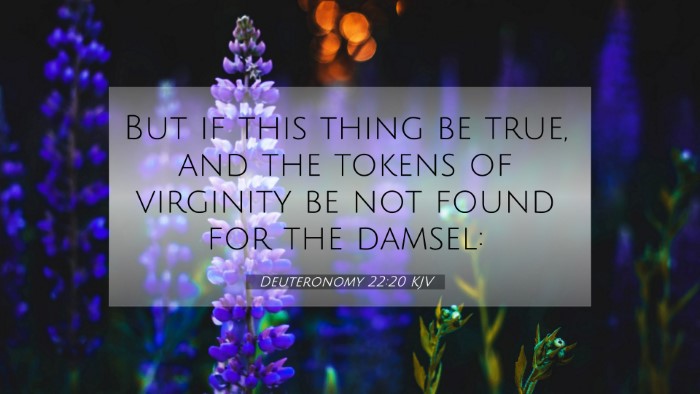Understanding Deuteronomy 22:20
Deuteronomy 22:20 states: "But if this thing be true, and the tokens of virginity be not found for the damsel."
This verse addresses issues of sexual morality and the serious implications of a woman's virginity in the context of Israelite law. Below we explore the interpretations and significance of this verse through insights provided by prominent public domain commentaries.
Commentary Insights
-
Matthew Henry:
Henry emphasizes the importance of virginity in ancient Israelite society, connecting it to the preservation of families and the sanctity of marriage. He illustrates that the law serves as a means of protection for women, ensuring that they are treated with dignity and respect. Henry also warns against unjust accusations, promoting the idea of due process and the need for evidence in matters of personal integrity.
-
Albert Barnes:
Barnes examines the cultural context of the laws concerning virginity, suggesting that they reflect a societal value placed on female purity. He highlights that the presence of evidence was crucial in legal proceedings and stresses the gravity of falsely accusing a woman, which could lead to severe consequences for the accuser. His commentary indicates that these laws aimed to instill moral responsibility and uphold community standards.
-
Adam Clarke:
Clarke points to the implications of this law in promoting fidelity and virtue among the Israelite people. He explains that the terms “tokens of virginity” represent physical proofs, often symbolizing honor and societal standing. Clarke also discusses the interpretation of blamelessness, emphasizing that the law aimed to not only protect women but also to ensure accountability from men in their relationships.
Key Themes in Deuteronomy 22:20
The themes emphasized in this verse highlight the significance of purity, reputation, and accountability. The stringent consequences for failing to prove virginity underline the responsibilities placed on individuals when entering marital unions, thereby reflecting a communal concern for moral conduct.
Bible Cross-References
To enhance our understanding of Deuteronomy 22:20, we can explore its connections with the following Bible verses:
- Exodus 22:16-17: Discusses the consequences of seducing a virgin.
- Leviticus 21:9: Outlines the punishment for a priest's daughter who becomes a harlot.
- Deuteronomy 22:13-19: Elaborates on the law regarding accusations against a wife.
- 1 Corinthians 7:3-5: Discusses marital obligations and relations.
- Matthew 5:27-28: Addresses lust and adultery, tying to the underlying ideas of purity.
- John 8:4-5: The story of the woman caught in adultery brings context to sexual morality.
- Hebrews 13:4: Emphasizes the honor of marriage and the punishment of sexual immorality.
Connections Between Bible Verses
The insights from these cross-references highlight the comprehensive biblical perspective on morality, marriage fidelity, and the societal structures surrounding sexual conduct. By examining these connections, readers can develop a more profound understanding of various biblical themes and their application to contemporary life.
Cross-Referencing Biblical Texts for Deeper Insight
Utilizing tools for Bible cross-referencing can provide clarity and depth to study sessions. Engaging with a Bible concordance or a cross-reference Bible study guide can help identify similar themes and contrasting viewpoints between different scriptures, enhancing the believer’s understanding of God's laws and principles.
Conclusion
The exploration of Deuteronomy 22:20 through the lens of esteemed biblical commentaries sheds light on the foundational principles of morality, societal order, and the importance of truth in relationships. By cross-referencing this and related verses, individuals can engage in a comprehensive study of the text, uncovering the rich tapestry of teachings that inform our understanding of both historical and modern ethical frameworks.


